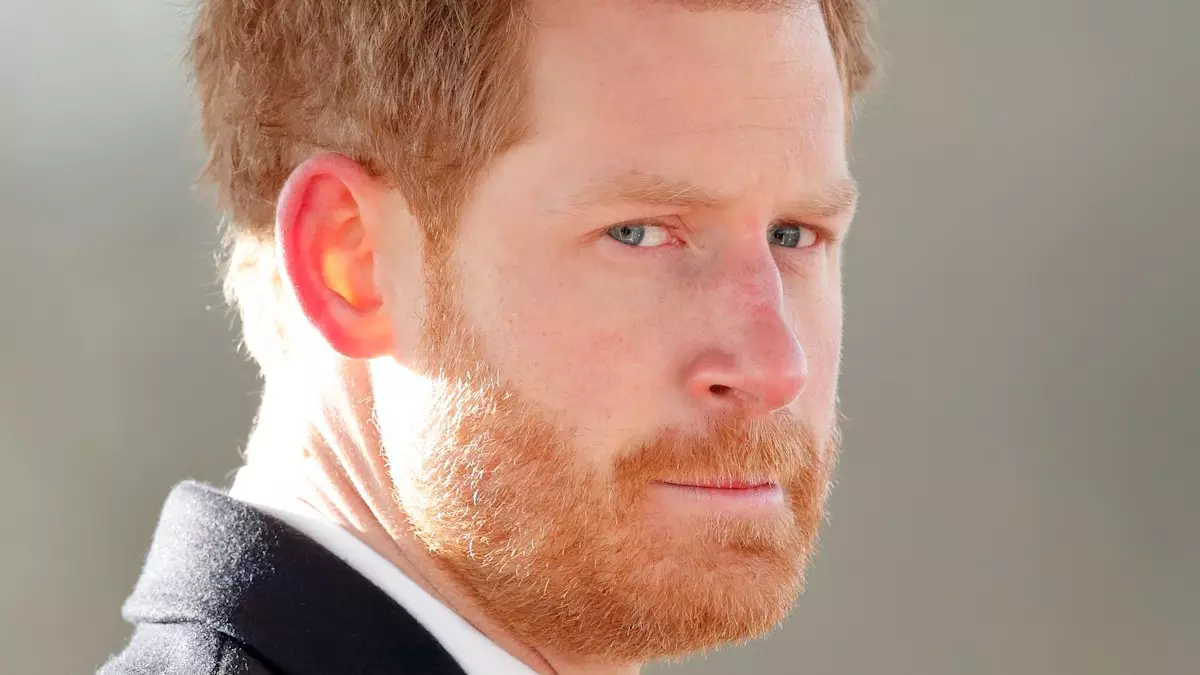The upcoming trial of the Duke of Sussex, set to unfold next month in the UK, mirrors the backdrop of royal complexities intertwined with issues of privacy and media ethics. This case, which pits Prince Harry and former Labour deputy leader Lord Tom Watson against News Group Newspapers (NGN), encompasses serious allegations concerning unlawful information gathering and personal privacy breaches. With a narrative that has captivated global audiences, this legal battle reflects broader societal conversations about privacy rights and journalistic ethics in the modern era.
Prince Harry, now 40, has leveled accusations against NGN that suggest a pattern of intrusive tactics employed by the tabloid’s journalists and private investigators. At the core of their claims are allegations of phone tapping and various methods of unlawful information acquisition that raise critical ethical questions about how far media agencies should go in the name of newsworthiness. Such practices, especially when directed at a public figure, highlight the delicate balance between public interest and individual privacy—a debate that continues to raise eyebrows in both legal arenas and public forums.
Further amplifying the stakes, Harry’s remarks at a New York summit underscore a deep commitment to a sense of accountability. He mentioned that 1,300 individuals had settled their claims against NGN, prompting his determination to push for justice since, he argued, he is in a unique position to address these systemic issues. This pursuit of accountability may resonate not only with those involved in the case but also with a wider public increasingly scrutinizing the actions of media conglomerates in their relentless quest for sensational stories.
The Trial: Expectations and Implications
The trial is poised to draw significant attention for approximately seven weeks, culminating in a face-off where Prince Harry will be cross-examined by barristers representing NGN. Such a high-profile trial inevitably attracts public intrigue; however, it also ushers in concerns about the psychological toll such scrutiny might impose on individuals, particularly those from royal backgrounds. The underlying narrative reveals Harry grappling with profound emotional complexities surrounding his identity as both a prince and a private individual.
This will not be Harry’s first encounter within court walls over allegations associated with press conduct. In 2023, he testified against Mirror Group Newspapers concerning similar claims of phone hacking. Each legal encounter carves out further space for dialogue about authority, celebrity, and the excesses of media coverage, suggesting a necessary evolution in how these interactions are navigated.
While the Duke prepares for this legal showdown, it appears unlikely that Meghan Markle will accompany him to the UK. Reports indicate that she will remain in Montecito, focused on caring for their two young children, Prince Archie and Princess Lilibet. This separation underscores a poignant reflection on family dynamics amidst the pressure of public life—particularly in light of recent shifts concerning Harry’s personal security.
The revelations regarding Harry’s legal action against the Home Office illustrate the heightened security concerns faced by the Duke and his family during UK visits. The 2020 decision by the Executive Committee for the Protection of Royalty and Public Figures, which recommended a different level of taxpayer-funded protection, has sparked a significant legal dispute. The judgment in February 2024 underscored the complexities surrounding royal security protocols, thus intensifying the narrative around the safety and well-being of Harry’s family during their visits to the UK.
In an emotional witness statement, Harry expressed his sorrow about stepping back from royal duties, citing the necessity of relocating to the US for the safety of his family. His conviction that the UK should still be a home for him and his children reflects a deep connection to his heritage. Yet, the ongoing threats to personal safety present a stark dilemma that many can empathize with, inviting discussion on the tensions between royal duties and the preservation of family life.
Meghan last visited the UK in 2022, and since then, apprehension regarding return trips has expanded, suggesting that unresolved issues concerning privacy and safety burden the couple. The media narrative around Meghan’s reluctance to return often casts her within a shadow of speculation, indicating that personal choices are sometimes overshadowed by public and media expectations.
Ultimately, Prince Harry’s legal battle transcends an individual grievance; it encapsulates a modern royal narrative grappling with age-old issues of privacy and public interest. As the trial approaches, it promises to serve as a catalyst for broader discussions about the ethical responsibilities of media entities and the need to protect individual rights against invasive practices. With each unfolding chapter in their story, the Duke and Duchess of Sussex continue to compel society to reflect on the balance between celebrity culture and the dignity of private life.

